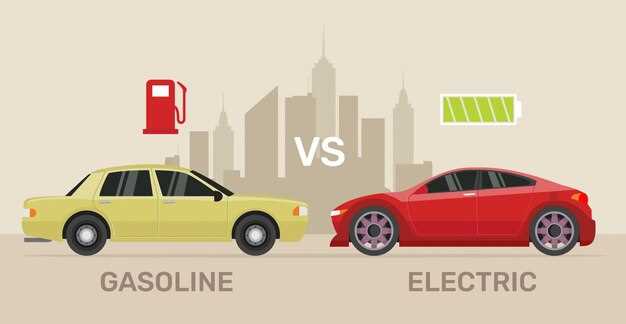

In the current automotive market, the decision to choose between a diesel car and a diesel truck has become increasingly important for consumers. Both options offer distinct advantages, and understanding your personal or business needs is crucial in making the right choice. Diesel engines are known for their exceptional fuel efficiency and torque, making them an attractive option for those who prioritize power and longevity in their vehicles.
When considering a truck, it’s vital to evaluate the intended use. Diesel trucks are often preferred for heavy-duty tasks such as towing, hauling, or navigating rough terrains. These vehicles are designed to handle the extra weight and stress associated with demanding work, providing reliability and durability. On the other hand, diesel cars may appeal more to those who seek fuel efficiency and lower running costs for daily commutes without compromising on performance.
Ultimately, the choice between diesel cars and trucks will depend on your specific requirements. Analyzing factors such as driving preferences, operational costs, and the type of loading capacity needed can guide you toward the best decision. Whether for personal use or business operations, understanding the strengths of both diesel options will empower you to make an informed selection that meets your needs.
Assessing Fuel Economy and Performance for Daily Driving

When considering diesel vehicles, both cars and trucks offer distinct advantages in terms of fuel economy and performance, particularly for daily driving. Diesel engines are known for their efficiency, providing superior miles per gallon compared to their gasoline counterparts. This attribute is particularly beneficial for individuals with long commutes or frequent highway travel, as it can lead to significant savings on fuel costs over time.
Trucks equipped with diesel engines typically deliver more torque, which translates to better hauling and towing capabilities. This is essential for those who require a vehicle for work-related tasks or outdoor activities. However, if daily driving primarily involves commuting in urban settings, the benefits of diesel trucks may be less pronounced. In such cases, the efficiency of smaller diesel cars might offer a more suitable solution, providing enough power for everyday needs without the added bulk of a truck.
Performance is another factor to consider. Diesel trucks tend to excel in endurance, making them ideal for long-distance travel and carrying heavy loads. Their robust construction and engine design often allow for higher payload capacities and better stability under load. Conversely, diesel cars provide responsive handling and agility, which are advantageous in city driving and volume-heavy traffic. For daily driving scenarios focused more on comfort and maneuverability, diesel cars may be the optimal choice.
Ultimately, the decision between a diesel car and a diesel truck for daily driving should hinge on individual needs. Considerations such as driving distance, load requirements, and personal preferences on vehicle size and handling will play a critical role in determining the best fit. Fuel economy and performance are vital elements, but they must align with daily requirements to ensure the most efficient and enjoyable driving experience.
Understanding Maintenance Costs and Longevity of Diesel Vehicles

When considering a diesel truck, understanding the maintenance costs and longevity is crucial for ensuring a wise investment. Diesel vehicles are often recognized for their durability and extended lifespan compared to gasoline counterparts. This reputation stems from the engineering design that prioritizes robust components that can withstand higher levels of stress and pressure.
In terms of maintenance costs, diesel engines typically experience lower routine maintenance expenses over time. For instance, they require less frequent oil changes due to the oil’s ability to withstand higher temperatures, often doubling the intervals compared to gasoline engines. Additionally, while parts such as fuel injectors and turbochargers may be more expensive to replace, their replacement periods can be significantly longer, contributing to overall lower long-term costs.
Furthermore, diesel fuel generally provides better fuel efficiency, translating into fewer trips to the gas station and lower overall fuel costs. While the initial purchase price of a diesel truck may be higher, the long-term savings on fuel and maintenance can offset this difference.
Longevity is another attractive aspect of diesel vehicles. Many diesel engines are built to last over 300,000 miles with proper care, which is significantly higher than most gasoline engines. Regular maintenance, such as timely oil changes, air filter replacements, and fuel system checks, is essential to achieving maximum lifespan. As these vehicles endure rigorous usage, they are often a preferred choice for heavy-duty tasks and towing, further insulating them from rapid depreciation.
In summary, while the upfront costs of diesel trucks may appear higher, their lower maintenance and operational costs, combined with remarkable longevity, make them an appealing option for those needing reliability and performance. Understanding these factors helps potential buyers make informed decisions tailored to their specific needs.
Evaluating Towing Capacity and Payload for Work Requirements
When selecting between diesel cars and trucks for work-related tasks, understanding towing capacity and payload is crucial. Both factors significantly influence the vehicle’s ability to handle heavy loads, which directly impacts productivity and efficiency in various job scenarios.
Towing capacity refers to the maximum weight a vehicle can safely pull. Diesel trucks generally excel in this area due to their robust engines and superior torque, making them ideal for hauling trailers, equipment, or boats. For professionals requiring frequent towing, such as contractors or landscapers, a diesel truck may be the more suitable option. In contrast, diesel cars typically have lower towing capacities, which might limit their effectiveness for heavy-duty tasks.
Payload, on the other hand, pertains to the maximum weight a vehicle can carry in its bed or cabin. This metric is vital for businesses that transport tools, materials, or goods. Diesel trucks often provide higher payload capacities than cars, accommodating larger and heavier loads more efficiently. However, some diesel cars may offer decent payload ratings, which can be beneficial for lighter jobs or personal use.
It is essential to evaluate your specific work requirements carefully. If your tasks frequently involve towing large trailers or carrying heavy tools, a diesel truck is more likely to meet those demands. If your work is less intensive and involves transporting lighter loads, a diesel car might be sufficient. Always consider the specifications and limitations of each vehicle to ensure it aligns with your operational needs.





